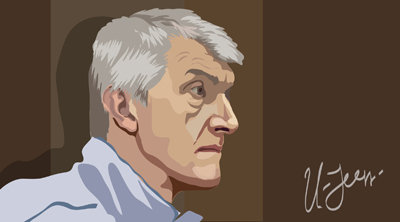ARKHANGELSK, September 12 - RAPSI. Former Menatep head Platon Lebedev will not attend his appeal hearing against the decision to deny him parole, a court spokesperson told the Russian Legal Information Agency (RAPSI).
The YUKOS case has been Russia's most high-profile Russian court case in recent years. In the early 2000s, when YUKOS was the country's largest oil company, authorities charged its executives with embezzlement and tax evasion. In 2005, the court sentenced YUKOS CEO Khodorkovsky and his codefendant, former Menatep head Platon Lebedev, to eight years in prison. Many Western critics have stated the case against YUKOS was politically driven, but the Russian government has flatly denied this allegation.
In 2005, Khodorkovsky and Lebedev were sentenced to eight years in prison for fraud and tax evasion. In late 2010, a Moscow district court sentenced them to 14 years in prison for oil theft and money laundering. They were expected to be released in 2017, taking into account the time they had already served for their convictions from their first trial in 2005. However, on May 24, the Moscow City Court reduced their sentences by one year each. The two are now expected to be released in 2016.
Khodorkovsky is serving his sentence in Segezh, Republic of Karelia, while Lebedev is serving his sentence in Velsk, Arkhangelsk Region. Lebedev's parole application was rejected, but the decision was appealed and therefore has not yet entered into force. Khodorkovsky's parole application, meanwhile, has not yet been heard. According to his attorneys, Khodorkovsky's parole application is currently sitting at the Segezh prison.
In late July, a court held against Lebedev's first parole application. The decision has not entered into force, since he filed a cassation appeal with a higher court.
The Arkhangelsk Region Court will start hearing the cassation on September 16 at 10:00 a.m. Moscow time. Lebedev will not be present at the court hearing, since the law prohibits prisoners from attending their hearings, Ksenia Solovyeva, the court spokesperson, said.
Solovyeva added that if Lebedev expressed his desire to take part in the consideration of the cassation appeal, the court could theoretically have granted him the request, but Lebedev never made such a request.
According to Solovyeva, such hearings usually last 15-20 minutes, but the examination of such a high-profile case may take up to two hours.



